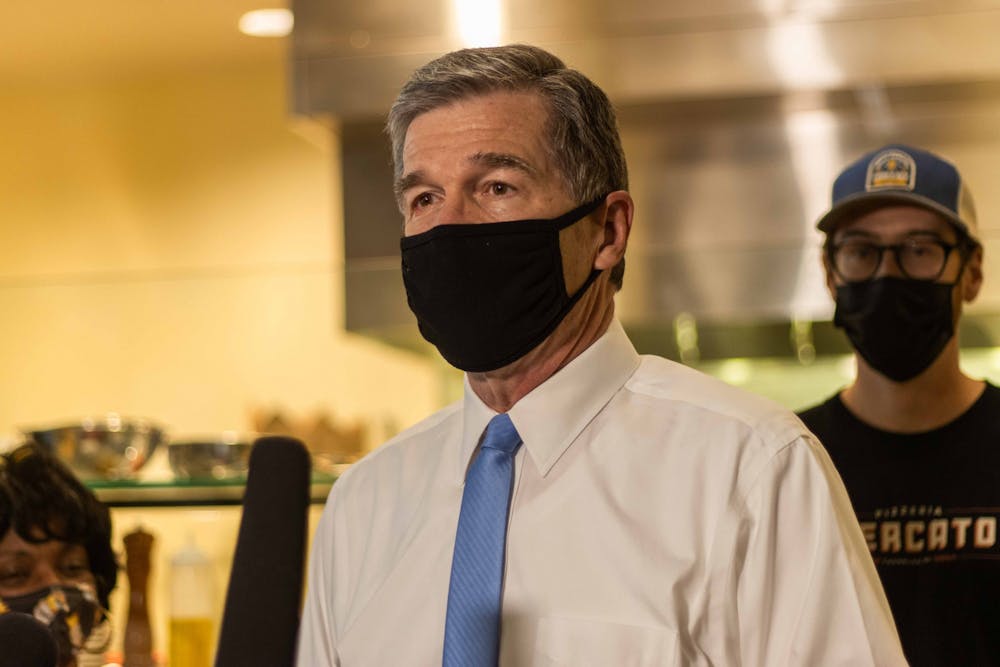A bill designed to restrict the executive powers of the governor could soon be headed to Gov. Roy Cooper's desk.
House Bill 264, also called the "Emergency Powers Accountability Act," has been a topic of discussion in the legislature since March. It aims to limit Cooper's and future governors' ability to institute emergency powers or declare a state of emergency.
If the legislation is passed, Cooper will no longer be able to unilaterally use his emergency powers. Instead, an agreement would have to be reached between the governor and a majority of the other members of the Council of State.
In March, H.B. 264 passed in the N.C. House of Representatives by a 69-50 majority-Republican vote along party lines. It then went to the Senate, and after several months of limited discussion, was amended and passed on Sept. 8. It was then sent back to the House, where it is currently under consideration.
If the bill passes in the House and is ratified, it will be sent to the governor’s office, where Gov. Cooper can veto it. If he does veto it, he is required to convene a legislative session in which his veto could potentially be overridden by a three-fifths vote in both the House and the Senate.
Currently, even though Republicans hold a majority in both chambers, they fall just short of the number of seats needed to override a veto on their own.
“A veto will not be sustained unless they put it on the calendar on a day when Democrats are absent, for whatever reason,” N.C. Rep. Pricey Harrison, D-Guilford, said.
Such a scenario occurred in 2019, when the Republican legislature overrode Cooper's budget veto while some Democratic House members were absent.
N.C. Rep. Verla Insko, D-Orange, said that more absences due to the pandemic could lead to something similar to what happened in 2019.




